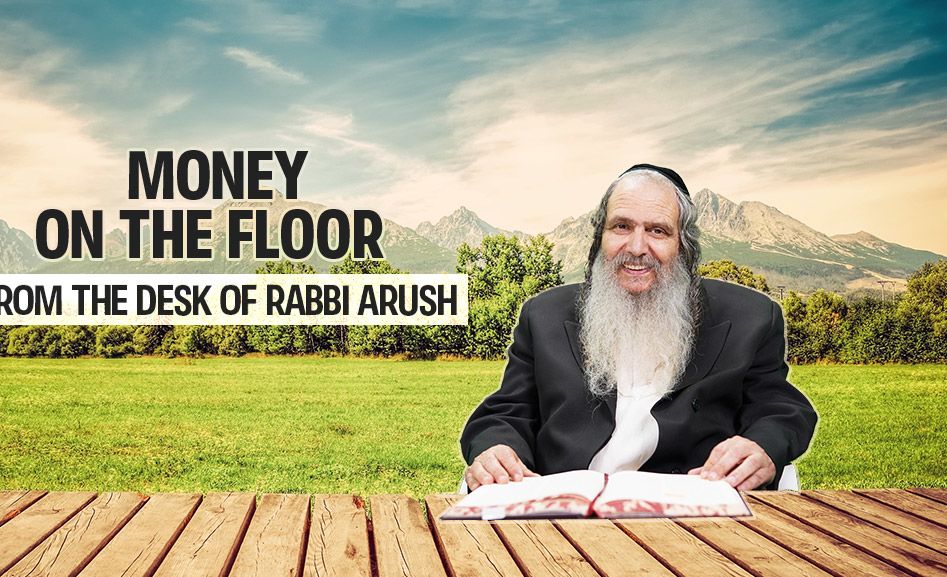
The Battle Against Forbidden Speech
Words of gratitude transform and unite us. By valuing positive speech and fostering unity, we create a world where every individual can thrive in peace and Divine blessing. But, on the other hand...

We believe in the transformative power of gratitude and the importance of mindful requests to Hashem. By valuing positive speech and fostering unity, we aim to create a world where every individual can thrive in peace and Divine blessing.
And Moses said, When the Lord gives you in the evening meat to eat and bread in the morning to become sated, when the Lord hears your complaints, which you are making [the people] complain against Him, but [of] what [significance] are we? Not against us are your complaints, but against the Lord. (Shemot 16:8)
Why did Hashem decide to give us meat in the evening and bread in the morning? Flipping it around seems like it would sit better with our health, right? Stuffing ourselves with meat at night makes peeling out of bed the next morning a monumental task.
So, what’s with the timing? Well, it turns out we brought it on ourselves. We asked for meat in an inappropriate manner.
A person cannot live without bread so the request for food to live was acceptable. As a result, we received it at the appropriate time, in the morning. However, we had tons of livestock, so we didn’t have to ask for meat and certainly didn’t have to complain about it.
The Origins of Discontent: Unraveling the Complaints in the Wilderness
Why does the Torah say, “You are making the people complain against Him?”
Let’s go back a few lines to the complaint itself:
If only we had died by the hand of the Lord in the land of Egypt, when we sat by pots of meat, when we ate bread to our fill! (Shemot 16:3)
We spent centuries slaving away for Pharaoh, and it got really rough right at the end. The idea that any of us had our fill of meat and bread is a complete myth.
The only people who had this luxury were the Egyptian high rollers who jumped on our bandwagon at the last minute to leave Mitzrayim. They were the ones who complained. They were the ones who felt lacking.
But, why did we get punished?
Rashi tells us the moment these newcomers started fussing, it was a domino effect. Moshe points out in verse 8 (Shemot 16:8, at the top), it wasn’t just them; their griping got everyone else in on the act too.
Echo Chambers of Negativity: The Double Edge Sword of Lashon Hara
The Chofetz Chaim teaches us that eavesdropping on gossip is just as bad as spreading it ourselves. As we delve deeper, we see that a listening ear might be in for more trouble than a wagging tongue.
Those who kick up a fuss are guilty once over, but the audience? They get a double whammy. Their ears sin by giving audience to the grumbles. Then, they add insult to injury by parroting what they’ve heard.
The instigators manage to make the gripes feel as normal as chullent. After all, if the crowd’s doing it, why shouldn’t you?
Consider a little experiment: lounge on YouTube for a bit. Spend half your time watching people do good deeds for one another. Only after watching for a good 15 minutes, ask yourself, is this something cool? Would you like to do it yourself?
Then switch to people playing practical jokes on one another. After 15 minutes of clips, ask yourself the same questions.
Whether for a moment, an afternoon, or even a lifetime, the company we keep creates an environment around us that shapes our view of what’s sensible or nonsensical.
Take, for instance, a Shabbat service. The Rabbi delivers a sermon that touches souls, lightening hearts, and buoying spirits.
But lo and behold, at the Kiddish, amidst the clatter of cake forks and the murmur of mingled voices, the topic shifts to the personal habits of the Rabbi. Instead of walking away, you get drawn into the conversation.
One minute you’re basking in the afterglow of spiritual enlightenment, and the next, you’re knee-deep in sponge cake and skepticism.
That’s the coronavirus of lashon hara. Unless you keep your distance, it will infect you. The hardest thing isn’t to stop talking, but to stop listening.
Words as Weapons: The Media’s Role in the Gaza War
The war we are engaged in is not taking place on the streets of Gaza.
Baruch Hashem, our brave brothers are winning. Hashem is blessing them with victory.
The war is on words. The war is the slander that the media spews about us. They accuse the IDF of murdering civilians even though we have spared more civilians than any other army in the history of warfare. They accuse us of starving children even as the world watches terrorists in Gaza steal food from their own people. They accuse us of the same crimes these terrorists committed against our sisters on Simchat Torah without any proof that such a thing ever happened.
We are being attacked with far worse than bullets and rockets.
They are piercing our armor with lashon hara.
The War of Words: Fighting Lashon Hara with Divine Gratitude
Hashem is giving us the path to victory!
If we are taking our worst hits from lashon hara by our enemies, it means we are committing this sin ourselves.
As long as we wage war on forbidden speech, we will be victorious. Just like in the desert – when Moshe raised his hands in prayer, we went on the offensive against Amalek and his forces.
When we have the urge to speak lashon hara and we fight it to the point that those words are never spoken, the Vilna Gaon tells us Hashem gives us a reward that not even the angels can contemplate.
It’s not easy. Fighting a war in Gaza isn’t easy. Fighting another war in South Lebanon isn’t easy either. King Solomon gives us the answer:
One who is slow to anger is better than a mighty man, and one who rules over his spirit [is better] than one who conquers a city. (Proverbs 16:32)
Every moment we conquer the urge to say something bad about someone, probably out of anger, pride, jealousy, or something originating from our evil inclination, it is like conquering Gaza or taking South Lebanon.
The test starts now: The tone in social media and the newspapers is starting to look less like October 8 and more like October 6. Universal calls for unity are being replaced by finger-pointing and calling for new elections.
We will be put to the test every day to reign in any temptation to call out a fellow Jew.
If we pass this test, we can petition Hashem to protect us and to redeem us. Hashem’s protection means the nations of the world cannot touch us. The terrorists can’t get near us. The pressure of the UN or EU or USA will be empty.
Lashon hara is a complaint against Hashem. It’s a gripe about why someone has this and you don’t. It’s a criticism about why some people can do this and we can’t. It’s second-guessing Hashem’s running of His world.
It’s up to us to fight the real war and conquer the urge.
If we can overcome this, Hashem will lead us to a place where we will not find anything to complain about.
**
David Ben Horin lives in Afula with his family, millions of sunflowers, and Matilda, our local camel. David‘s Israeli startup, 300 Marketing Solutions, is a lean marketing agency for startups and small businesses that creates and promotes SEO-optimized ROI-driven to the right audience on LinkedIn to make your business the star of the show.










Tell us what you think!
Thank you for your comment!
It will be published after approval by the Editor.